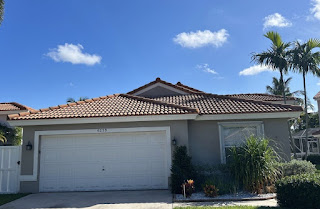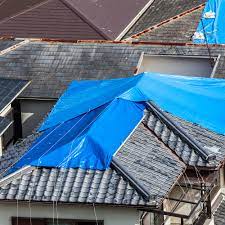Hurricane Preparation List- South Florida Roofing- Palm Beach County, FL.
brought to by : South Florida Roofing
.jpg) |
This guide will help you with the basic items so you can be prepared for a natural disaster. At the end there are further resources to dive into your planning efforts.
Keep in Mind: Water
One gallon, per person, per day for three days
Keep in air-tight, plastic containers that are easy to access
Keep in Mind: Water
One gallon, per person, per day for three days
Keep in air-tight, plastic containers that are easy to access
Make sure you fill up your bathtubs with water.
Keep in Mind: Food
Three-day supply of non-perishable foods
Camping Cooks has a great emergency food guide for Eating and Cooking When the Power Goes Out
Don’t forget food for your pets, make sure to stock up on pet food and any pet products needed, such as cat litter, bedding and anything you may need during and after the storm.
Keep in Mind: First Aid
Sometimes in an emergency, you or a family member may be injured. An adequate First Aid kit can keep a minor injury from turning major. You may want to take a basic first aid class though the Red Cross or online through the National Safety Council.
Basic First Aid Items should include:
- Sterile gloves
- Sterile dressings
- Soap and antibiotic towelettes
- Antibiotic ointment
- Adhesive bandages in a variety of sizes
- Eye wash solution
- Thermometer
- Prescription medications you take every day
- Prescribed medical supplies such as glucose and blood pressure monitoring equipment and supplies
- First Aid book
- Non-prescription drugs (aspirin or non-aspirin pain reliever, anti-diarrhea medication, antacid, laxative)
Very important: Sanitation
Adequate sanitation is a significant environmental concern after a disaster. When sewer pipes are damaged or the sanitation system goes off-line, entire communities, including people and habitats are at risk. Be prepared to take care of your waste for the same period of time as you’ve prepared food and water. A basic sanitation kit should include:
- Toilet paper
- Soap
- Feminine supplies
- Plastic garbage bags & ties
- Plastic bucket with tight lid
- Chlorine bleach
- Supplies for pet waste
Don't Forget Tools & Supplies
What you may need could vary based on where you live, the type of disaster you expect and your family unit. Talk with your family about items they wouldn’t want to be without in an emergency. Here are some basic items that most people will need in a disaster:
- Wrench to turn off gas and water lines
- Cups, plates and utensils (raid your camping gear to save money -- just don’t forget to replace them after each trip)
- Light source (solar is best so you don’t have to worry about batteries)
- Radio (get one that is USB powered and check out our Solar Charger & Battery Bank or buy a battery-operated radio and extra batteries)
- Manual can opener or a utility knife
- Small fire extinguisher
- Pliers
- Duct tape
- Matches in a waterproof container
- Plastic storage container to keep everything in one place
Don't Forget about your: Documents
In preparation, scan valuable documents and store them securely online so they can’t be ruined by a disaster. It may be helpful to have copies of key items (like insurance cards, social security number, passwords and insurance policies) in your kit as well. Take short videos to catalogue valuables in your home, such as vehicles, computers, furniture and artwork, for insurance purposes. Key documents include:
- Will, insurance policies, contracts, deeds
- Passports, social security cards, immunization records
- Bank account numbers
- Credit card account numbers and companies
- Family records (birth, marriage, death certificates)
Some additional tasks to complete before storm:
- Make sure you fill up your vehicle with gas.
- Take pictures of your house, lot's of pictures.
- Stop by the bank and withdrawal some cash, to have on hand.
- Fill up any gas tanks for grills and/or generators.



Comments
Post a Comment